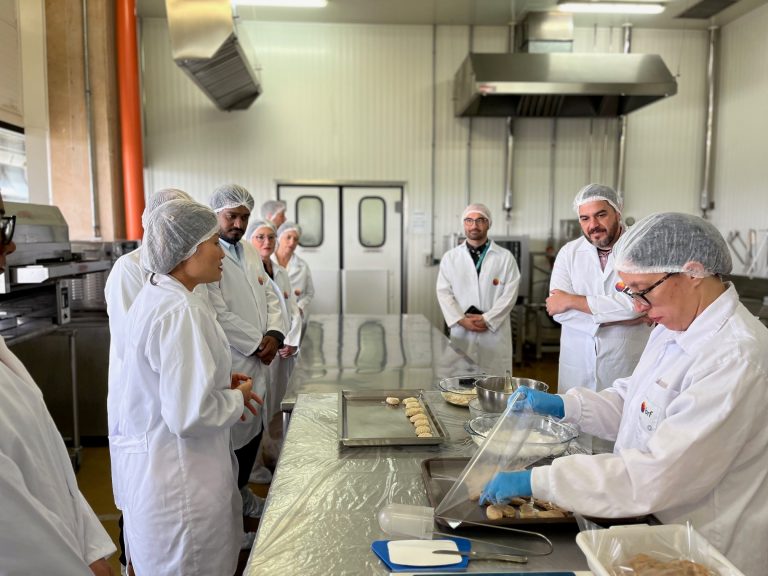São Paulo – One of Brazil’s leading animal protein exporters, BRF has specific policies for halal production (in compliance with the laws of Islam). The plants producing foods bound to Arab and Muslim countries are certified, the slaughter and manufacturing of poultry byproducts are segregated from other units, and each country’s demand is met separately.
“We have specific certification for each market because requirements change for each country,” said this Wednesday (25) the vice president of Marketing and New Business of BRF, Marcel Sacco. The company received a group of journalists at its Innovation Center (pictured) in the city of Jundiaí, in São Paulo. The journalists came to São Paulo on a press trip, including visits to other companies, and participated in the 2nd Global Halal Brazil Business Forum (GHB), held in partnership between the Arab-Brazilian Chamber of Commerce (ABCC) and certifier FAMBRAS Halal.
Sacco explained that the company does not export its range of frozen meals, such as pizza and lasagna, to Muslim countries. “We don’t export because the plants that produce them are not certified,” said him as an example of the company’s attention to the rules of Islam. The company has been operating in the Gulf for 50 years. The Sadia brand is the poultry market leader in the region.
The director of Research & Development of BRF, Fabio Bagnara, highlighted other stages in the development and production of food besides halal production. At the innovation center, the company does not have slaughter or production sections but can simulate up to 90% of its manufacturing on an experimental scale. It is also the plant where challenges are solved. “Recipes might change for two reasons. The consumer changes or the inputs do. Therefore, we need to adjust the formula,” said Bagnara.
The director of Marketing & Communication of the ABCC, Silvana Gomes, said BRF, by receiving journalists, is giving other companies an example of the halal market’s potential. “BRF, like other large companies in the protein segment that are leaders in halal production and exports, inspires other companies. Receiving journalists is a way of demonstrating expertise and showing other companies, including from different segments, that the halal market can be explored,” she said.
The visit of foreign journalists is part of the Halal do Brasil Project, a partnership between the ABCC and the Brazilian Trade and Investment Promotion Agency (ApexBrasil) to foster Brazilian exports of value-added foods to Muslim markets. “It’s a way to promote Brazil as a major global food supplier,” said Gomes about the project and visits.
The project brought journalists from the Emirates News Agency (WAM), Salaam Gateway, The Halal Times, and the assistant professor of Sociology and Islamic Studies of Johns Hopkins University, Ryan M. Calder.
Translated by Elúsio Brasileiro









